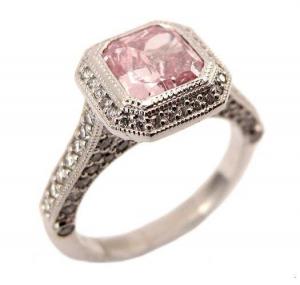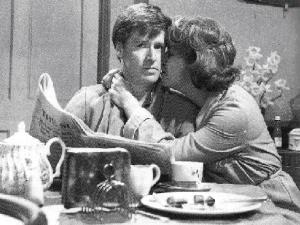February 27, 2015
REDEMPTION
REDEMPTION
by rare2comeby
A lungful of sea-air always made him happy. Today Manek felt even happier. He had long waited for this day. To buy a Grand piano – just like the one he had gutted long time back as a teenager. Gifted by his Dad on his Mom’s birthday, it was the pride of possession of the Patels. They had made it big in Alang – one of the largest ship-breaking facilities on the southern coast of Gujarat.
Those were happier times. Ship breaking was a booming industry and half of all the world’s End of Life ships came to Alang to die. And everybody in the fraternity knew Manek. Money poured in every time a truck returned to their yard after selling scrap in the mills. Hosting luxurious parties had become the forte of the Maneks. Crème-de-la-crème of the country rubbed shoulders with them. Wine flowed freely and the food was any connoisseur’s delight. Manek however shunned these parties. He used to feel a strange pain - that a ship’s death can usher celebration for so many, forgetting how many times the ship had sailed around the world, the storms she had braved, the crew and cargo she had carried, the adventures she had had and the lives she had lived. Such empathy however was short-lived as Manek was also sucked into the vortex - an industry that made a living out of killing – killing ships. Manek’s dad had fallen a victim to asbestosis[1] and the mantle had quickly passed on to his son.
The early days for Manek were tough. Being part of a labour-intensive industry had its own share of challenges. Labour needed to be sourced from the fringes of Orissa, Jharkhand and Bihar and for this Manek had to engage suppliers – the bete noires[2] of the business. They had to be looked after well so that they didn’t join rival firms. This often meant playing to their demands some of which would make his flesh creep. But business it was and Manek knew that money flowed only to those who endured.
Manek was not all bania[3]; he had a softer side. He loved frequenting the outskirts of the ship-breaking yard that are a thriving second-hand market of goods stripped off the ships - beds, chairs, clocks, tables, torches, chandeliers, inflatables, fire-extinguishers, cutlery, doors, windows, curtains, tablecloth, electrical fittings, kitchen gadgets and a variety of electronic, electrical, mechanical machines. Manek would pick something or the other every now and then from these second-hand shops – a chandelier, sometimes a pretty carpet or even an electrical fitting that harked back to the days of the Raj. What eluded him every time was a Grand piano – preferably a Bosendorfer[4] - like the one gifted to his mom.
Lately endurance had taken on an altogether different meaning for Manek and others like him in the industry. The price of junk ships had gone up steeply, and had almost doubled currently, making the whole demolition business financially unviable. As if this was not enough, the sudden fall in international scrap prices by four thousand rupees per metric tonne coupled with the Indian government’s recent announcement to cut the duty for steel imports to fifteen per cent had sounded a death knell to this already tottering industry.
Manek had suddenly become hard pressed for cash. While labour entailed a steady upkeep, the revenue had dried up. Manek has already mortgaged his family bungalow to ease his working capital flows. He drove a Merc (he would rather drive these beauties than own one) borrowed from one of his friends. Severely cash-strapped, he had chanced to visit one of the second-hand shops and what greeted his eyes was a sheer beauty - a Bosendorfer on sale at a fraction of its price, one he had longed to buy for so long.
Manek was of a different mettle. A month back he had bought a Rolex. He knew if he had to go down, he would rather go down in style. For a fleeting moment he dithered, then removed his old Rolex watch and handed it to the shopkeeper, requesting him to keep the same as a token advance, promising him that he would be back soon with full cash. The keeper knew him well and wanted him to take the piano without paying any advance but Manek was adamant.
By evening the Bosendorfer arrived. It was unpacked and laid out in his drawing room. Manek recalled those anxious moments when blows had rained on him like hailstorm when his dad had come to know of his son’s rash behaviour. His mom had sobbed silent tears and young Manek had promised her that he would make amends for his folly by buying her one when he grew up. His Mom had passed away soon after his dad and Manek had spent so many nights grieving silently for the promise that he had stayed short of keeping. But this was another day and though her Mom was not around to share in her son’s achievement years after, Manek felt happy.
He took a stroll in the beach; took a deep drought of sea-air and knew this night he would no longer have to feel the pangs of childhood – of promises made but never kept, of having been rudely admonished by his dad for a child’s play gone awfully wrong.
-------
The morning came sooner than Manek had expected. His old time servant Mohan was thudding on his bedroom door. The night before he had sloshed scotch and the hangover was still there. He quickly put on his house-gown and lumbered for the door. The news that awaited Manek was enough to cringe his spirits and make him feel giddy and listless.
Four labours had succumbed to an accident in his ship-breaking yard late last night. The labours couldn’t duck the falling parts from the ship as they were slicing up the vessel with their torch cutters. The news had spread wide and far and work at the yard had come to a dead halt.
Manek felt numb with anguish; he knew the next few days would be tough as the Police, Human Rights and what not would try to gain mileage from the incident, highlighting the abysmally poor conditions in which labours were working in Alang.
Manek dialed a number and waited. The call never went through. For some reason Bagubhai was not picking up the phone. Bagubhai was nothing short of a Messiah for all businesses – a private moneylender who had a knack for salvaging businesses in the throes of disaster. But he dealt only in his closed circuit and Manek felt blessed to be a part of that network. But today was different.
At 10 o’clock Manek received a visitor. A lad had come from Bagubhai’s office with a note. Bagubhai had written that he had reason to believe that his phone had been tapped and that right now all his movements were under scrutiny and he was most apologetic in not being able to help Manek out this time. But whenever the tension eased, he would take up cudgels on Manek’s behalf and support him with whatever help he deemed necessary.
Manek dialed Amrutbhai – his Munshiji. Amrutlal sounded crisp and clear – Seth ato gareeb log hata.. Bahakaoma awine emna parivarwala kai bhi ultu sidhu bolse to lafdo thai jase. Kevi rithe bhi paise apine emnu modhu bandh karao...
Sir, these are poor people. If they opened their mouth and said something improper, trouble may erupt. Pay out any amount and shut their mouth…
In short he needed to cough up good cash to stall any fallout from this tragedy.
Manek felt the ground had given way beneath his feet. A surge of blood filled his cranium; Amrutbhai knew about his financial condition. How come he had asked him to cough up soo fast!? But again, Manek knew Amrutbhai was a veteran in the industry. He knew the pulse of the people and he could read the lull before every storm. If he had asked him to pay his way out of the mess, he must pay…but how?
Manek’s banker had withdrawn overdraft[5] facility. Still he could have given a try by requesting the Manager of the bank personally but to-day being Sunday that option was ruled out. Waiting till Monday for the bank to open would be playing out to his detractors.
Manek thought for a while and then dialed Classics – a curio shop in Bhavnagar which bought and sold antiques. He chatted up with the owner, mixing business with his characteristic Gujrati banter. Next hour saw a hum of crazy activity as Manek sped towards Bhavnagar in a tempo he had borrowed from the local garage.
-------
Maganbhai - the owner of Classics was there to receive Manek personally. After all, how often does one get someone to sell such a rare item? He had already lined up a few foreign contacts each of whom was eager to lay his hands on the piece. A virtual rally of phone calls was keeping Maganbhai busy as he kept spiking the rate for a piece he had yet to lay his hands on. The deal was over in twenty minutes straight and out came Manek from Classics carrying a suitcase and beaming with smile.
Manek picked up Amrutbhai and Bhupesh - the supplier from whose gang the deceased labours hailed from. The ride to the labour hutment was bumpy and seemed to take a lifetime. The deceased labours lived in a cluster of huts, which were not just claustrophobic but dingy and full of an acrid and foul stench.
Bhupesh went in and called the members of the bereaved family. Under the watchful eyes of other labours and their suppliers, Manek handed over the bundle of notes amounting to several lakhs to the family. The wives of the deceased labours took the money, forcing a smile on their lips, trying hard to express gratitude for whatever little the Seth had done to alleviate their misery and berievement.
Once the compensation had been disbursed and the ordeal was over, Manek headed straight for his home, his heart racing.
-------
Reaching home, Manek lit an agarbatti, performed arti and stood silent before his Mom’s photo. Yesterday he had felt happy buying a Bosendorfer Grand Piano remembering his late Mom, keeping a promise made years back. Today he felt even happier that he had done something to have made his Mom feel prouder had she been still alive.
As the wine flowed and the goblets clinked and the sound of cheers rung long in to the night in the Patel house where three groggy men sat down to elevate their spirits in a dying industry, two sounds were missing – the first of Manek’s Mom whom he had lost decades back and the second – the sound of the Bosendorfer Grand Piano that Manek had bought a day back. He would never get to see his Mom but for the Bosendorfer – the piano which he had just sold to redeem his pledge to his late Mom was perhaps still his – not lost forever, just waiting for him to be picked up sometime, somewhere in some unassuming curio shop.
[1] A deadly lung disease caused by exposure to stripping / cutting of asbestos
[2] Greatly disliked
[3] Hindi word for ‘businessman’
[4] German branded piano with more reliable repetition and greater subtle tones making it an obvious choice for every pianist
[5] The amount by which withdrawals exceed deposits, or the extension of credit by a lending institution to allow for such a situation.
Those were happier times. Ship breaking was a booming industry and half of all the world’s End of Life ships came to Alang to die. And everybody in the fraternity knew Manek. Money poured in every time a truck returned to their yard after selling scrap in the mills. Hosting luxurious parties had become the forte of the Maneks. Crème-de-la-crème of the country rubbed shoulders with them. Wine flowed freely and the food was any connoisseur’s delight. Manek however shunned these parties. He used to feel a strange pain - that a ship’s death can usher celebration for so many, forgetting how many times the ship had sailed around the world, the storms she had braved, the crew and cargo she had carried, the adventures she had had and the lives she had lived. Such empathy however was short-lived as Manek was also sucked into the vortex - an industry that made a living out of killing – killing ships. Manek’s dad had fallen a victim to asbestosis[1] and the mantle had quickly passed on to his son.
The early days for Manek were tough. Being part of a labour-intensive industry had its own share of challenges. Labour needed to be sourced from the fringes of Orissa, Jharkhand and Bihar and for this Manek had to engage suppliers – the bete noires[2] of the business. They had to be looked after well so that they didn’t join rival firms. This often meant playing to their demands some of which would make his flesh creep. But business it was and Manek knew that money flowed only to those who endured.
Manek was not all bania[3]; he had a softer side. He loved frequenting the outskirts of the ship-breaking yard that are a thriving second-hand market of goods stripped off the ships - beds, chairs, clocks, tables, torches, chandeliers, inflatables, fire-extinguishers, cutlery, doors, windows, curtains, tablecloth, electrical fittings, kitchen gadgets and a variety of electronic, electrical, mechanical machines. Manek would pick something or the other every now and then from these second-hand shops – a chandelier, sometimes a pretty carpet or even an electrical fitting that harked back to the days of the Raj. What eluded him every time was a Grand piano – preferably a Bosendorfer[4] - like the one gifted to his mom.
Lately endurance had taken on an altogether different meaning for Manek and others like him in the industry. The price of junk ships had gone up steeply, and had almost doubled currently, making the whole demolition business financially unviable. As if this was not enough, the sudden fall in international scrap prices by four thousand rupees per metric tonne coupled with the Indian government’s recent announcement to cut the duty for steel imports to fifteen per cent had sounded a death knell to this already tottering industry.
Manek had suddenly become hard pressed for cash. While labour entailed a steady upkeep, the revenue had dried up. Manek has already mortgaged his family bungalow to ease his working capital flows. He drove a Merc (he would rather drive these beauties than own one) borrowed from one of his friends. Severely cash-strapped, he had chanced to visit one of the second-hand shops and what greeted his eyes was a sheer beauty - a Bosendorfer on sale at a fraction of its price, one he had longed to buy for so long.
Manek was of a different mettle. A month back he had bought a Rolex. He knew if he had to go down, he would rather go down in style. For a fleeting moment he dithered, then removed his old Rolex watch and handed it to the shopkeeper, requesting him to keep the same as a token advance, promising him that he would be back soon with full cash. The keeper knew him well and wanted him to take the piano without paying any advance but Manek was adamant.
By evening the Bosendorfer arrived. It was unpacked and laid out in his drawing room. Manek recalled those anxious moments when blows had rained on him like hailstorm when his dad had come to know of his son’s rash behaviour. His mom had sobbed silent tears and young Manek had promised her that he would make amends for his folly by buying her one when he grew up. His Mom had passed away soon after his dad and Manek had spent so many nights grieving silently for the promise that he had stayed short of keeping. But this was another day and though her Mom was not around to share in her son’s achievement years after, Manek felt happy.
He took a stroll in the beach; took a deep drought of sea-air and knew this night he would no longer have to feel the pangs of childhood – of promises made but never kept, of having been rudely admonished by his dad for a child’s play gone awfully wrong.
-------
The morning came sooner than Manek had expected. His old time servant Mohan was thudding on his bedroom door. The night before he had sloshed scotch and the hangover was still there. He quickly put on his house-gown and lumbered for the door. The news that awaited Manek was enough to cringe his spirits and make him feel giddy and listless.
Four labours had succumbed to an accident in his ship-breaking yard late last night. The labours couldn’t duck the falling parts from the ship as they were slicing up the vessel with their torch cutters. The news had spread wide and far and work at the yard had come to a dead halt.
Manek felt numb with anguish; he knew the next few days would be tough as the Police, Human Rights and what not would try to gain mileage from the incident, highlighting the abysmally poor conditions in which labours were working in Alang.
Manek dialed a number and waited. The call never went through. For some reason Bagubhai was not picking up the phone. Bagubhai was nothing short of a Messiah for all businesses – a private moneylender who had a knack for salvaging businesses in the throes of disaster. But he dealt only in his closed circuit and Manek felt blessed to be a part of that network. But today was different.
At 10 o’clock Manek received a visitor. A lad had come from Bagubhai’s office with a note. Bagubhai had written that he had reason to believe that his phone had been tapped and that right now all his movements were under scrutiny and he was most apologetic in not being able to help Manek out this time. But whenever the tension eased, he would take up cudgels on Manek’s behalf and support him with whatever help he deemed necessary.
Manek dialed Amrutbhai – his Munshiji. Amrutlal sounded crisp and clear – Seth ato gareeb log hata.. Bahakaoma awine emna parivarwala kai bhi ultu sidhu bolse to lafdo thai jase. Kevi rithe bhi paise apine emnu modhu bandh karao...
Sir, these are poor people. If they opened their mouth and said something improper, trouble may erupt. Pay out any amount and shut their mouth…
In short he needed to cough up good cash to stall any fallout from this tragedy.
Manek felt the ground had given way beneath his feet. A surge of blood filled his cranium; Amrutbhai knew about his financial condition. How come he had asked him to cough up soo fast!? But again, Manek knew Amrutbhai was a veteran in the industry. He knew the pulse of the people and he could read the lull before every storm. If he had asked him to pay his way out of the mess, he must pay…but how?
Manek’s banker had withdrawn overdraft[5] facility. Still he could have given a try by requesting the Manager of the bank personally but to-day being Sunday that option was ruled out. Waiting till Monday for the bank to open would be playing out to his detractors.
Manek thought for a while and then dialed Classics – a curio shop in Bhavnagar which bought and sold antiques. He chatted up with the owner, mixing business with his characteristic Gujrati banter. Next hour saw a hum of crazy activity as Manek sped towards Bhavnagar in a tempo he had borrowed from the local garage.
-------
Maganbhai - the owner of Classics was there to receive Manek personally. After all, how often does one get someone to sell such a rare item? He had already lined up a few foreign contacts each of whom was eager to lay his hands on the piece. A virtual rally of phone calls was keeping Maganbhai busy as he kept spiking the rate for a piece he had yet to lay his hands on. The deal was over in twenty minutes straight and out came Manek from Classics carrying a suitcase and beaming with smile.
Manek picked up Amrutbhai and Bhupesh - the supplier from whose gang the deceased labours hailed from. The ride to the labour hutment was bumpy and seemed to take a lifetime. The deceased labours lived in a cluster of huts, which were not just claustrophobic but dingy and full of an acrid and foul stench.
Bhupesh went in and called the members of the bereaved family. Under the watchful eyes of other labours and their suppliers, Manek handed over the bundle of notes amounting to several lakhs to the family. The wives of the deceased labours took the money, forcing a smile on their lips, trying hard to express gratitude for whatever little the Seth had done to alleviate their misery and berievement.
Once the compensation had been disbursed and the ordeal was over, Manek headed straight for his home, his heart racing.
-------
Reaching home, Manek lit an agarbatti, performed arti and stood silent before his Mom’s photo. Yesterday he had felt happy buying a Bosendorfer Grand Piano remembering his late Mom, keeping a promise made years back. Today he felt even happier that he had done something to have made his Mom feel prouder had she been still alive.
As the wine flowed and the goblets clinked and the sound of cheers rung long in to the night in the Patel house where three groggy men sat down to elevate their spirits in a dying industry, two sounds were missing – the first of Manek’s Mom whom he had lost decades back and the second – the sound of the Bosendorfer Grand Piano that Manek had bought a day back. He would never get to see his Mom but for the Bosendorfer – the piano which he had just sold to redeem his pledge to his late Mom was perhaps still his – not lost forever, just waiting for him to be picked up sometime, somewhere in some unassuming curio shop.
[1] A deadly lung disease caused by exposure to stripping / cutting of asbestos
[2] Greatly disliked
[3] Hindi word for ‘businessman’
[4] German branded piano with more reliable repetition and greater subtle tones making it an obvious choice for every pianist
[5] The amount by which withdrawals exceed deposits, or the extension of credit by a lending institution to allow for such a situation.
Similar posts
The Diamond Ring
by PriM
A missing family heirloom; meant for one sister, but ending up in the hands of the eldest, with unresolved issues.
CRUSH
by Dahmie
Love is supernatural and it holds some in captivity
- Aug, 5 2015
- Fiction Realistic Fiction
Base Your Love on This
by Dravench
The girl I fell in love with years ago was standing in my office.
Things that happen only in Soaps
by Teddy Kimathi
This is a list narrative, portraying the humorous world of soaps in our TV screens....




